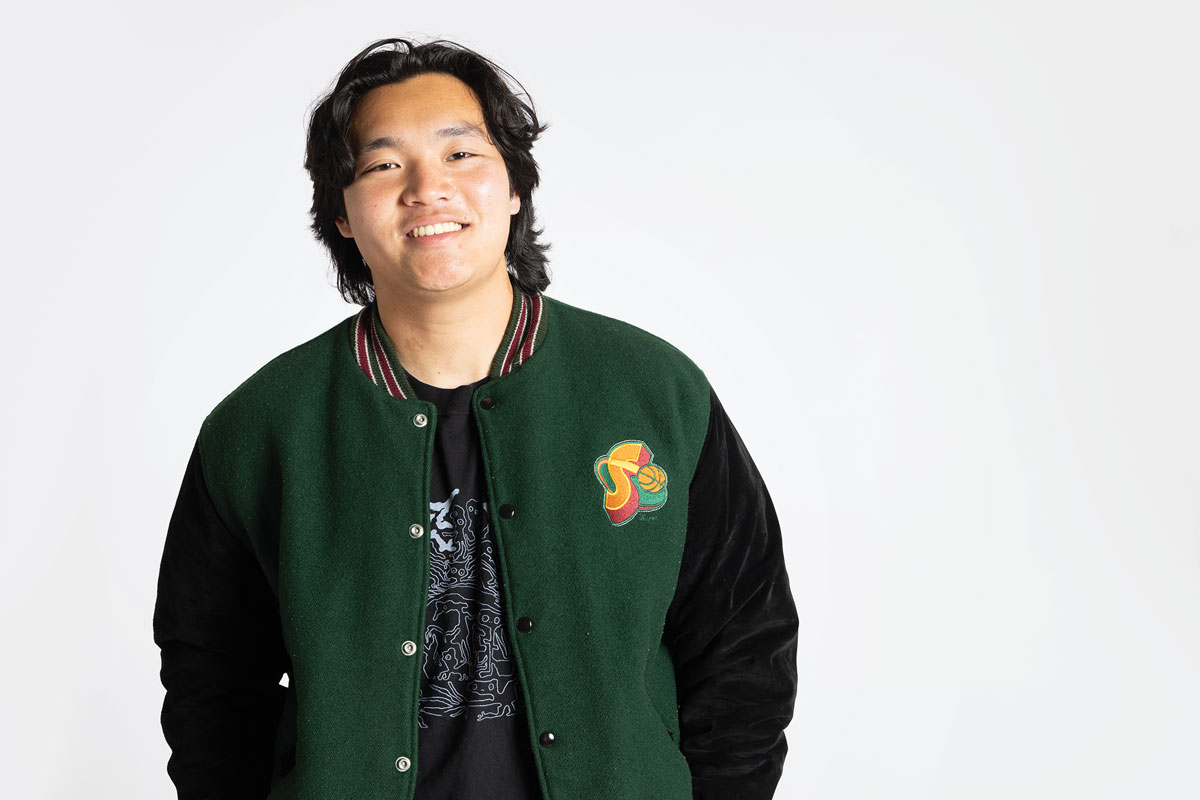Basketball and the Model Minority Myth
Meet comparative race and ethnicity studies major Joshua Park.
Hometown: San Francisco, California
Thesis adviser: Prof. Anand Vaidya [anthropology]
Thesis: “Exploring Linsanity: the Model Minority Myth, Laboring Bodies, and Asian American Racialization through Sport”
What it’s about: In February and March of 2012, Jeremy Lin, a Taiwanese American basketball player, became the starting point guard of the New York Knicks. Lin led the Knicks to 10 wins in 13 games, captivating the attention of the sporting world. In my thesis, I explore the racial formations of the figure of the basketball star and the Asian American laborer, placing “Linsanity” within these histories. I ultimately explore the racial rhetorics that become mobilized through Lin’s media coverage.
What it’s really about: How basketball and sports reinforce socialized notions of race.
In high school: I swam a lot on swim team and did community organizing work in the San Francisco Bay Area. More specifically, I worked on various local voting rights initiatives, including a peer-to-peer voter preregistration program in Bay Area high schools and a local ballot initiative to allow 16- and 17-year-olds to vote in local San Francisco elections.
Influential class: Cultural Study of Music with Prof. Morgan Luker [music] helped me deconstruct naturalized notions of sound, music, and noise. Analyzing and listening to “Roar” by Katy Perry was iconic and a lot of fun.
Cool stuff: I was a team coordinator for Ultimate Frisbee—it was a lot of fun building a sense of community through sport. I was also a peer career advisor with the Center for Life Beyond Reed.
Challenges faced: One of the challenges I faced during my time at Reed was the transition from predominantly Asian American institutions and communities in San Francisco to predominantly white ones at Reed and Portland. It was challenging to adjust to different ways of communication and social norms. I think I overcame them through support from on-campus institutions, particularly the staff who supported me from the Center for Life Beyond Reed.
Ability developed at Reed: Working more efficiently. At Reed it always feels like there is more to do. More applications, assignments, and papers. As a result, I think I developed the ability to more effectively prioritize tasks and be more efficient with my time.
How Reed changed me: Reed helped me become much more self-aware and critical, understanding how my various identities impact how I should interact and engage with others.
Help along the way: As a middle-class student, financial aid made it possible for me to attend Reed.
Awards, grants, fellowships: Summer Internship Awards in 2020 and 2021, Talent Development and Diversity Intern at Stoel Rives.
What’s next: Figuring it out :)
